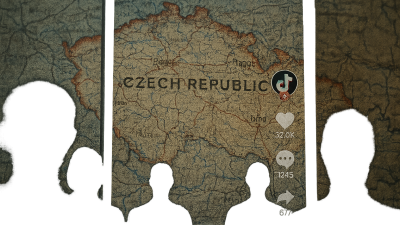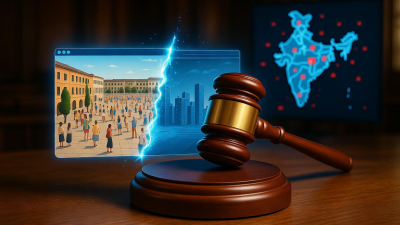In a move that underscores the complex intersection of technology, politics, and digital content regulation, Telegram CEO Pavel Durov has revealed that French authorities requested the removal of certain Moldovan channels from the platform. Messaging apps like Telegram, with millions of global users, have increasingly become arenas for cross-border tensions over information, regulation, and sovereignty. Understanding this episode provides insight into how governments engage with platforms and the challenges faced by digital service providers operating internationally.
Context and Rationale
France has long been proactive in regulating digital platforms, particularly concerning misinformation, foreign influence, and content deemed illegal under national law. While Durov did not disclose the specific nature of the Moldovan channels in question, requests of this type typically involve political content, disinformation, or material considered harmful to public order.
The request reflects broader European concerns about cross-border digital influence. With Telegram’s encryption and semi-anonymous model, governments often find it challenging to enforce local laws while respecting user privacy and platform autonomy.
Balancing Compliance and Freedom
Telegram, under Durov’s leadership, has consistently positioned itself as a privacy-centric platform, emphasizing freedom of expression and resistance to undue censorship. However, the company also navigates requests from governments with varying legal frameworks.
Durov’s public acknowledgment of France’s request signals transparency and a willingness to engage in dialogue, while also highlighting the delicate balancing act Telegram faces: complying with legitimate legal requests without compromising the platform’s core values of privacy and free communication.
Digital Sovereignty and Content Regulation
This incident is part of a larger global trend in which governments assert digital sovereignty, seeking to regulate content hosted by foreign tech companies. Europe, in particular, has introduced stringent rules around online content, privacy, and platform accountability.
For users and observers worldwide, the situation raises questions about cross-border enforcement:
-
How much authority should national governments have over international platforms?
-
What are the limits of content moderation in a globalized digital environment?
-
How can platforms balance compliance with privacy, security, and freedom of speech?
Pros and Cons of Government Intervention
Pros:
-
Helps prevent the spread of harmful or illegal content.
-
Supports national security and public order.
-
Encourages platforms to implement responsible moderation practices.
Cons:
-
Risks overreach or censorship beyond local jurisdiction.
-
May undermine user trust if platforms are perceived as compromising privacy.
-
Can create precedents for other governments with less transparent intentions.
Trust, Privacy, and Transparency
Telegram’s user base spans millions across Europe, Asia, and beyond. Transparency about government requests is crucial in maintaining trust. Users value the platform’s encryption and semi-anonymous features, and public disclosure by Durov reassures the community that such requests are not processed in secrecy.
However, repeated takedown requests from authorities could provoke debates about platform neutrality, bias, and the role of private companies in enforcing public policy.
Messaging Apps in the Crosshairs
Telegram is not alone. Platforms like WhatsApp, Signal, and Facebook Messenger frequently face governmental requests for content moderation or data access. Industry analysts note that these interactions shape the evolution of platform policies, compliance mechanisms, and legal frameworks governing international tech companies.
Experts suggest that companies embracing proactive transparency—documenting government requests and explaining their decisions—are better positioned to maintain credibility and user loyalty.
Trends and Statistics
-
Telegram has over 700 million active users globally, making it a significant communication channel.
-
Europe has seen a 35% increase in government takedown requests to social media platforms over the past two years.
-
Messaging apps with encryption face double scrutiny: user privacy vs. governmental oversight.
These statistics illustrate the growing tension between user privacy and regulatory compliance, a dynamic that will shape future policies for digital platforms.
FAQs
Q1: Why did France request the removal of Moldovan channels?
A1: While specifics are undisclosed, such requests usually involve political content, disinformation, or illegal material under French law.
Q2: Does Telegram comply with these requests automatically?
A2: Telegram reviews each request and balances compliance with privacy and platform principles.
Q3: Can users in Moldova still access the channels?
A3: Depending on Telegram’s implementation, channels may be restricted in France but remain accessible elsewhere.
Q4: How common are such requests from governments?
A4: Increasingly common. European nations, in particular, have ramped up legal requests to digital platforms in recent years.
Q5: Does this affect Telegram’s global operations?
A5: It highlights the challenges of cross-border content regulation but does not fundamentally change Telegram’s operational model.
Q6: Are other messaging platforms facing similar issues?
A6: Yes, platforms like WhatsApp, Signal, and Facebook Messenger regularly handle takedown and content moderation requests.
Q7: What are the ethical considerations?
A7: Balancing free speech, user privacy, and legal compliance is complex and requires transparent decision-making.
Q8: How is user trust maintained?
A8: Transparency, clear communication about requests, and adherence to privacy policies are key to maintaining trust.
The revelation by Telegram’s Durov about France’s request underscores the evolving landscape of digital governance, user privacy, and platform responsibility. As governments assert more influence over content, platforms must navigate a fine line between compliance and preserving their core values. For users, industry stakeholders, and regulators alike, this incident provides a lens into the delicate balance of global communication, technology, and sovereignty in the digital age.
Stay informed on global tech, messaging apps, and digital policy trends. Subscribe to our newsletter for weekly updates and expert insights directly in your inbox.
Note: All logos, trademarks, and brand names referenced herein remain the property of their respective owners. The content is provided for editorial and informational purposes only. Any AI-generated images are illustrative and do not represent official brand assets.


